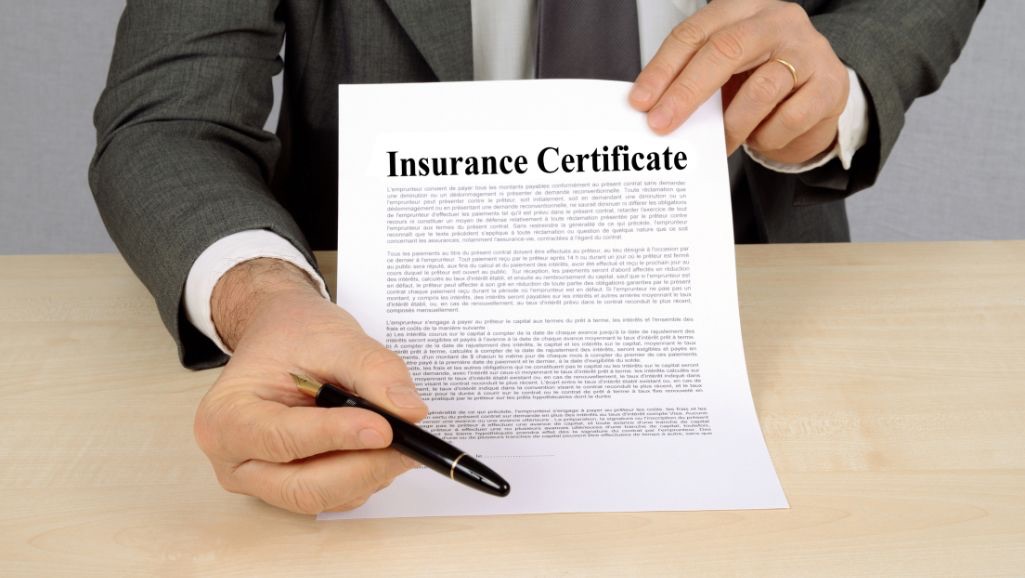 Contractor Insurance is crucial to protect your business financially, provide credibility to your business, and put the minds of the individuals you're working with - such as owners and general contractors - at ease.
Contractor Insurance is crucial to protect your business financially, provide credibility to your business, and put the minds of the individuals you're working with - such as owners and general contractors - at ease.
Construction sites are riddled with hazards – sharp objects, moving vehicles, etc. - that can cause damage or injury. Insurance helps for damage or injuries that occur. Owners, general contractors, and others want to protect themselves from being held liable for injuries and damages that are not their fault, so they want to ensure that anyone they work with also has adequate insurance.
For example, suppose a general contractor hires a plumber, and the plumber installs a leaky faucet that causes damage. In that case, the subcontractor's insurance should help pay for the damages caused by their work.
This is why a certificate of insurance (COI) is essential to any construction business.
What is a Certificate of Insurance?
"A certificate of insurance (COI) is a document issued by an insurance company or broker. The COI verifies the existence of an insurance policy and summarizes the key aspects and conditions of the policy," Investopedia explains. "Small business owners and contractors typically require a COI that grants protection against liability for workplace accidents or injuries to conduct business."
The following information is typically included on a COI:
- Name of the insurer or insurers providing the coverage
- Insurance agent or broker's contact info
- Name and address of the insured party
- Name and contact info of the certificate holder
- Name of any additional insured parties
- Policy number
- Type of coverage
- Amount of coverage
- Coverage description
- Policy's expiration date
What's the Difference Between an Insurance Policy and a Certificate of Insurance?
A COI is a brief summary of the main details of an insurance policy used to show proof of insurance or to show that a third party is named as an additional insured. An insurance policy is a detailed contract that is much more detailed than a COI. It includes information about the terms and conditions of the policy, covered perils, exclusions, etc. If you have any questions or need to file a claim, the insurance policy will provide most of the information you need.
Who Will Ask for a COI?
COIs may be requested by the following:
- General contractors
- Property Owners
- Clients
- Suppliers
- Government agencies, when you bid on a job with them
- Businesses you're leasing equipment from
- Banks and lenders
When Should You Request a COI?
Whenever you're working with a third party, and there is a chance of damage or injury that is not your fault – a faulty product or shoddy workmanship from a specialty contractor - you should request a COI to help ensure that you are not held liable for the damage or injury. For example, if you're a general contractor hiring a subcontractor (electrician, plumber, etc.), you should request a COI. Both general contractors and subcontractors should also ask for COIs from any vendors they work with.
Notes About COIs:
- When you receive a COI, you must review all the information to ensure accuracy.
- The certificate holder is the party receiving the COI from the party insured. Being listed as a certificate holder does not provide any protection under the policy. Only the policyholder and additional insured parties listed receive protection under the policy listed on the COI.
- A COI shows that a policy is in effect on the date and time it was issued. Unscrupulous businesses may cancel the policy after the COI is issued. Therefore, verifying with the insurer or insurers that the party still has insurance with appropriate policy limits is always a good idea.
- You should organize and retain all COIs indefinitely.
Don't Overpay For Contractor Insurance!
American Insuring Group will perform an in-depth review of your business to determine your specific insurance coverage needs and then compare the cost of that coverage with multiple insurance companies to ensure that you get the best price on quality Contractor Insurance.
Call us today at (800) 947-1270 or (610) 775-3848, or connect with us online.







